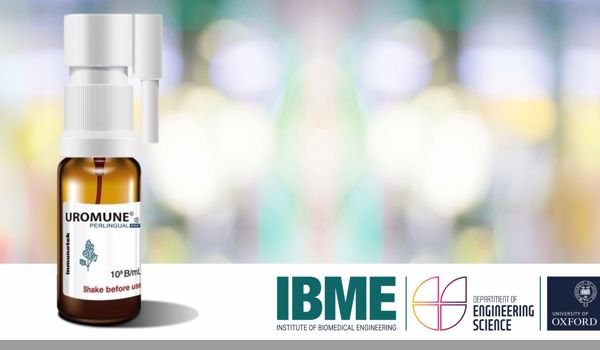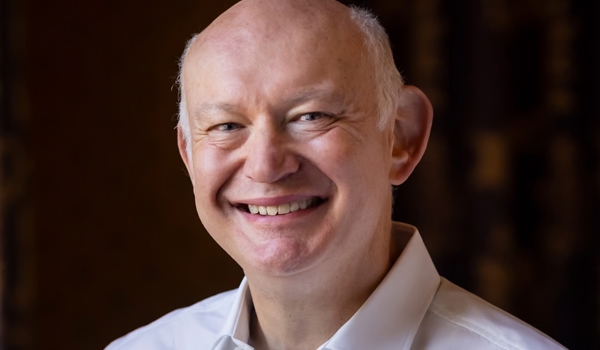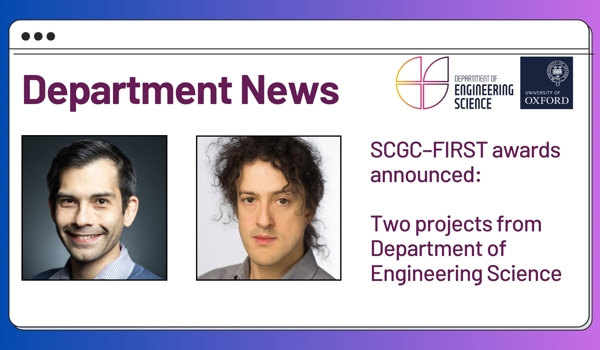Biography
Professor Antonis Papachristodolou joined the University of Oxford in 2006, where he is currently Professor of Engineering Science and a Tutorial Fellow in Worcester College, Oxford.
Since 2015, he has been an EPSRC Fellow and Director of the EPSRC & BBSRC Centre for Doctoral training in Synthetic Biology. He obtained an MA/MEng degree in Electrical and Information Sciences from the University of Cambridge, U.K.
In 2005 he completed a PhD in Control and Dynamical Systems at the California Institute of Technology, with a PhD Minor in Aeronautics. In 2015 he was awarded the European Control Award for his contributions to robustness analysis and applications to networked control systems and systems biology and the O. Hugo Schuck Best Paper Award. He is Fellow of the IEEE. He serves regularly on Technical Programme Committees for conferences, and was associate editor for Automatica and IEEE Transactions on Automatic Control.
SYSOS Group
Antonis is part of the SYSOS (System of Systems) group at the Department of Engineering Science.
Recent news from the group includes:
- Thomas Prescott, a DPhil student in the group, was awarded the 2015 European PhD Award for the Control of Complex and Heterogeneous networks for his thesis "Large-Scale Layered Systems and Synthetic Biology: Model Reduction and Decomposition".
- Richard Mason and Antonis Papachristodoulou were awarded the O. Hugo Schuck Best Paper Award for their 2014 ACC paper on "Chordal Sparsity, Decomposing SDPs and the Lyapunov Equation". The same paper won the best student paper award in 2014.
- Antonis Papachirstodoulou was awarded the 2015 European Control Award and gave a plenary at the 2015 European Control Conference.
Keep up with the group's news on their website.
Most Recent Publications
A game theoretic approach for safe and distributed control of unmanned aerial vehicles
A game theoretic approach for safe and distributed control of unmanned aerial vehicles
NLBAC: A Neural Ordinary Differential Equations-based Framework for Stable and Safe Reinforcement Learning
NLBAC: A Neural Ordinary Differential Equations-based Framework for Stable and Safe Reinforcement Learning
Distributed control design and safety verification for multi-agent systems
Distributed control design and safety verification for multi-agent systems
NLBAC: A Neural Ordinary Differential Equations-based Framework for Stable and Safe Reinforcement Learning.
NLBAC: A Neural Ordinary Differential Equations-based Framework for Stable and Safe Reinforcement Learning.
Stable and Safe Reinforcement Learning via a Barrier-Lyapunov Actor-Critic Approach
Stable and Safe Reinforcement Learning via a Barrier-Lyapunov Actor-Critic Approach
Research Interests
The SYSOS (System of Systems) Group develops tools and algorithms based on modern control theory for the robust analysis and design of biological and technological systems and applies them in a range of areas, from Synthetic Biology to fluid mechanics. In particular, they have been developing theory to understand how nonlinear networked systems operate and how to design control laws for them, using computational tools based on the Sum of Squares decomposition and Semidefinite Programming.
They have been applying this theory to understand and (re)design biological systems (Systems and Synthetic Biology) but also to analyse and design control laws for fluid flows, robust synchronization, multi-agent system consensus, smart power networks and congestion control for the Internet.
Their areas of research include:
- Nonlinear systems analysis, Sum of Squares optimization and Lyapunov techniques/LMIs. In this spirit, they have developed methods for stability analysis of systems described by Ordinary, Delay and Partial Differential Equations, as well as switched/hybrid systems.
- Systems and Synthetic Biology. The team collaborates closely with groups in Engineering Science (Professor Wei Huang) Oxford Biochemistry (Dr George Wadhams and Professor Judith Armitage) and other institutions for understanding biological pathways through mathematical modelling using experimental data and designing new experiments for model invalidation (Systems Biology), as well as proposing and implementing redesigns for existing biological systems for improved performance (Synthetic Biology).
- Software Development (SOSTOOLS and CDCS).
- Large-scale Networked Systems analysis with communication and structural constraints. Examples in this field come from synchronization phenomena in oscillator networks, Network Congestion Control for the Internet and Power System analysis/Smart grid. They are also looking at multi-agent systems consensus under communication and structural constraints such as the effect of time delays and switching topologies.
- Fluid mechanics. The group takes a control engineering approach to understand questions in Hydrodynamic Stability and mechanisms for background noise energy amplification and subsequent reduction. We are also using a Sum of Squares approach for the stability analysis and control design of systems described by Partial Differential Equations.
Research Groups
Current Projects
- Synthetic Biology: Designing, building and testing feedback controllers inside bacterial cells.
- Sparse Semidefinite and Sum of Squares programming: Using chordal decomposition methods to improve their scalability.
- Optimisation and Distributed Control of/on Networks.
- Systems Biology of rhizobia metabolism during the different phases of their interaction with host
plants. - Stability analysis of PDEs using sum of squares, with applications in Fluid Mechanics.
Grants
Current Grants
- PI on EPSRC Fellowship for Growth in Synthetic Biology: Designing Feedback Control in Biology for Robustness and Scalability (EP/M002454/1)
- Training grant holder for EPSRC & BBSRC Centre for Doctoral Training in Synthetic Biology (EP/L016494/1)
Recent grants
- PI on Sum-of-Squares Approach to Global Stability and Control of Fluid Flows (EP/J010537/1)
- Co-I on Autonomous Behaviour and Learning in an Uncertain World (EP/J012041/1)
- Lead PI on Control Engineering Inspired Design Tools for Synthetic Biology (EP/I031944/1)
- Served as Associate editor for Automatica (2010-2018) and IEEE Transactions on Automatic Control (2010-2013).
Most Recent Publications
A game theoretic approach for safe and distributed control of unmanned aerial vehicles
A game theoretic approach for safe and distributed control of unmanned aerial vehicles
NLBAC: A Neural Ordinary Differential Equations-based Framework for Stable and Safe Reinforcement Learning
NLBAC: A Neural Ordinary Differential Equations-based Framework for Stable and Safe Reinforcement Learning
Distributed control design and safety verification for multi-agent systems
Distributed control design and safety verification for multi-agent systems
NLBAC: A Neural Ordinary Differential Equations-based Framework for Stable and Safe Reinforcement Learning.
NLBAC: A Neural Ordinary Differential Equations-based Framework for Stable and Safe Reinforcement Learning.
Stable and Safe Reinforcement Learning via a Barrier-Lyapunov Actor-Critic Approach
Stable and Safe Reinforcement Learning via a Barrier-Lyapunov Actor-Critic Approach
Recent Publications
For a complete list, please check my Google Scholar page.
C. Kelly, A. Harris, H. Steel, E. Hancock, J. Heap, and A. Papachristodoulou, Synthetic negative feedback circuits using engineered small RNAs, Nucleic Acids Research, 46(18), 2018
* H. Steel, A. Sootla, B. Smart, N. Delalez, and A. Papachristodoulou, Improving Orthogonality in Two-Component Biological Signalling Systems using Feedback Control, IEEE Control Systems Letters, 2018
Y. Zheng , R. P. Mason and A. Papachristodoulou, Scalable Design of Structured Controllers using Chordal Decomposition, IEEE Transactions on Automatic Control, 2017.
Most Recent Publications
A game theoretic approach for safe and distributed control of unmanned aerial vehicles
A game theoretic approach for safe and distributed control of unmanned aerial vehicles
NLBAC: A Neural Ordinary Differential Equations-based Framework for Stable and Safe Reinforcement Learning
NLBAC: A Neural Ordinary Differential Equations-based Framework for Stable and Safe Reinforcement Learning
Distributed control design and safety verification for multi-agent systems
Distributed control design and safety verification for multi-agent systems
NLBAC: A Neural Ordinary Differential Equations-based Framework for Stable and Safe Reinforcement Learning.
NLBAC: A Neural Ordinary Differential Equations-based Framework for Stable and Safe Reinforcement Learning.
Stable and Safe Reinforcement Learning via a Barrier-Lyapunov Actor-Critic Approach
Stable and Safe Reinforcement Learning via a Barrier-Lyapunov Actor-Critic Approach
DPhil Opportunities
If you find what we do interesting, and you want to apply for a DPhil (PhD) or MSc by Research in our group, then please contact us sooner than later to discuss possible projects. Note that there are several Centres of Doctoral Training that are relevant to our research, especially the EPSRC CDT in Autonomous Intelligent Machines and Systems and the BBSRC Interdisciplinary Biosciences DTP. If you have a strong academic background, the chances of securing funding for your studies are higher the earlier you apply. Note that applications need to follow the Postgraduate Admissions guidelines.
Most Recent Publications
A game theoretic approach for safe and distributed control of unmanned aerial vehicles
A game theoretic approach for safe and distributed control of unmanned aerial vehicles
NLBAC: A Neural Ordinary Differential Equations-based Framework for Stable and Safe Reinforcement Learning
NLBAC: A Neural Ordinary Differential Equations-based Framework for Stable and Safe Reinforcement Learning
Distributed control design and safety verification for multi-agent systems
Distributed control design and safety verification for multi-agent systems
NLBAC: A Neural Ordinary Differential Equations-based Framework for Stable and Safe Reinforcement Learning.
NLBAC: A Neural Ordinary Differential Equations-based Framework for Stable and Safe Reinforcement Learning.
Stable and Safe Reinforcement Learning via a Barrier-Lyapunov Actor-Critic Approach
Stable and Safe Reinforcement Learning via a Barrier-Lyapunov Actor-Critic Approach





